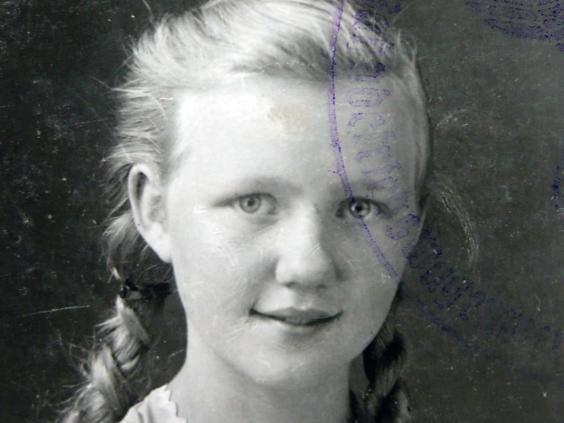
A woman thought to be the last survivor of Adolf Hitler's bunker - where the Nazi leader shot himself as the Red Army closed in on Berlin - has spoken out about the Third Reich's final days.
Johanna Ruf was only a teenager when she served as a nurse treating soldiers injured in the battle for Germany's capital, and told of how Joseph Goebbels said to her: "Final victory is at the door."
"But only the Russian was at the door," the 88-year-old said in an interview with Bild.
Her diaries of that period in early 1945 have now been published, giving a day-by-day insight into the last refuge of the Nazis, including how she once slapped Goebbels' son for being "cheeky".
She said: "For a long time I was embarrassed because I gave Helmut, the little Goebbels, a big slap in the face.
"He was so cheeky. Over-excited. I threatened to slap him. He said, 'Go on then!' So I gave him one.
"A few hours later, Helmut and his five siblings were dead, poisoned by his mother Magda in the bunker."
The youngest of a group of 30 medics from the Bund Deutscher Madel, the girls' wing of the Hitler Youth, Ms Ruf volunteered as a nurse after school lessons ended in January 1945, The Times reported.
Just 15 in 1945, she was forced to dodge gunfire during the battle and after it ended, was detained by the Russians for two months. She was released due to her young age.
Her memoir, titled A Slap For Little Goebbels, describes how in late April that year she and the others were told they would receive an award from Hitler in person.
She said: "We washed our blouses to be able to appear before Hitler in clean clothes.
"Then everything was cancelled."
Hitler had killed himself as Russian forces advanced to within just a few hundred metres of the bunker.
Publisher Berlin Story said: "The special value of Johanna Ruf's diary lies in the immediacy of her notes.
"One senses what it was like for a 15-year-old girl to have to struggle through the apocalyptic battle for Berlin and then to have to spend two months in Soviet detention, uncertain whether she would be allowed to return to Berlin or would be deported to the east."
Ms Ruf broke her silence about the experience when she spoke to staff at an exhibition about the bunker last year, The Times reported.








